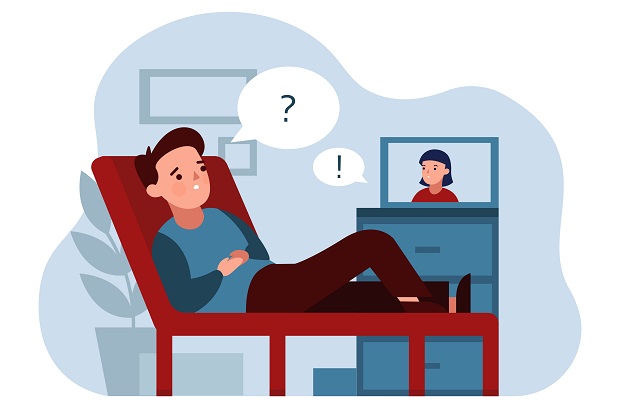The development and growth of the technological era demands the exploration of new opportunities in the provision of health services. Telepsychiatry is a clear example of the development in technology and constitutes a valuable contribution to the solution of specific problems, such as the provision of specialized mental health services in regions with difficult access.
Telepsychiatry will be one of the four great fields that technology will open in the future of this medical practice, at a level almost as important as the development of psychotropic drugs during the 20th century, says the study The Future of Digital Psychiatry, published in the journal Current Psychiatry Reports in August this year. According to this research, development in these areas will benefit patients in aspects such as early diagnosis and personalized treatment.
But perhaps the most important revolution that telemedicine raises for mental health has to do with the ease of support that the specialist can carry out throughout the patient’s evolution, given the ease of access that digital communication offers.
For a psychiatrist it is possible to use telepsychiatry to diagnose the conditions that most frequently affect people today, such as sleep disorders, anxiety, depression, among others; and remotely carry out precise monitoring of both the therapy and the treatment required for each case.
Although this practice has gone almost unnoticed until today in our country, already in 2014 it was stated at the World Congress of Psychiatry that this form of telemedicine allows to facilitate access to mental health for people with reduced mobility, or who are in areas of difficult access (which is particularly relevant given the geography of our territory. Telepsychiatry can also be a highly effective complement to a traditional psychiatric treatment, freeing up clinic time and reducing costs for both the patient and the doctor.
Due to cultural factors such as the lack of emotional education, or the notion that we must “be strong” in an adverse situation, many people in our country tend to ignore or underestimate their mental health problems, which, if not treated properly , end up affecting our family and work life, among other complications. Telemedicine in mental health can help overcome insecurities when going to the psychiatrist.
The great goal of the digital world is ultimately to erase the distances that limit interpersonal communication, and telepsychiatry has been able to interpret this notion and bring it into medical practice. As it is a state-of-the-art tool, current and future research will undoubtedly contribute to perfecting its use, but its use is already very promising, especially for our local reality.
Telepsychiatry must act in a complementary way to traditional psychiatry
Although telepsychiatry improves the quality of care offered to the patient, it must be used in a complementary way to traditional psychiatry. This is still essential to address the most complex cases where the professional and the patient must maintain direct contact.
Despite the great advances that telepsychiatry brings, it is still necessary to clearly determine what type of patients could benefit from this type of psychotherapy and which ones should be treated in a conventional way.

